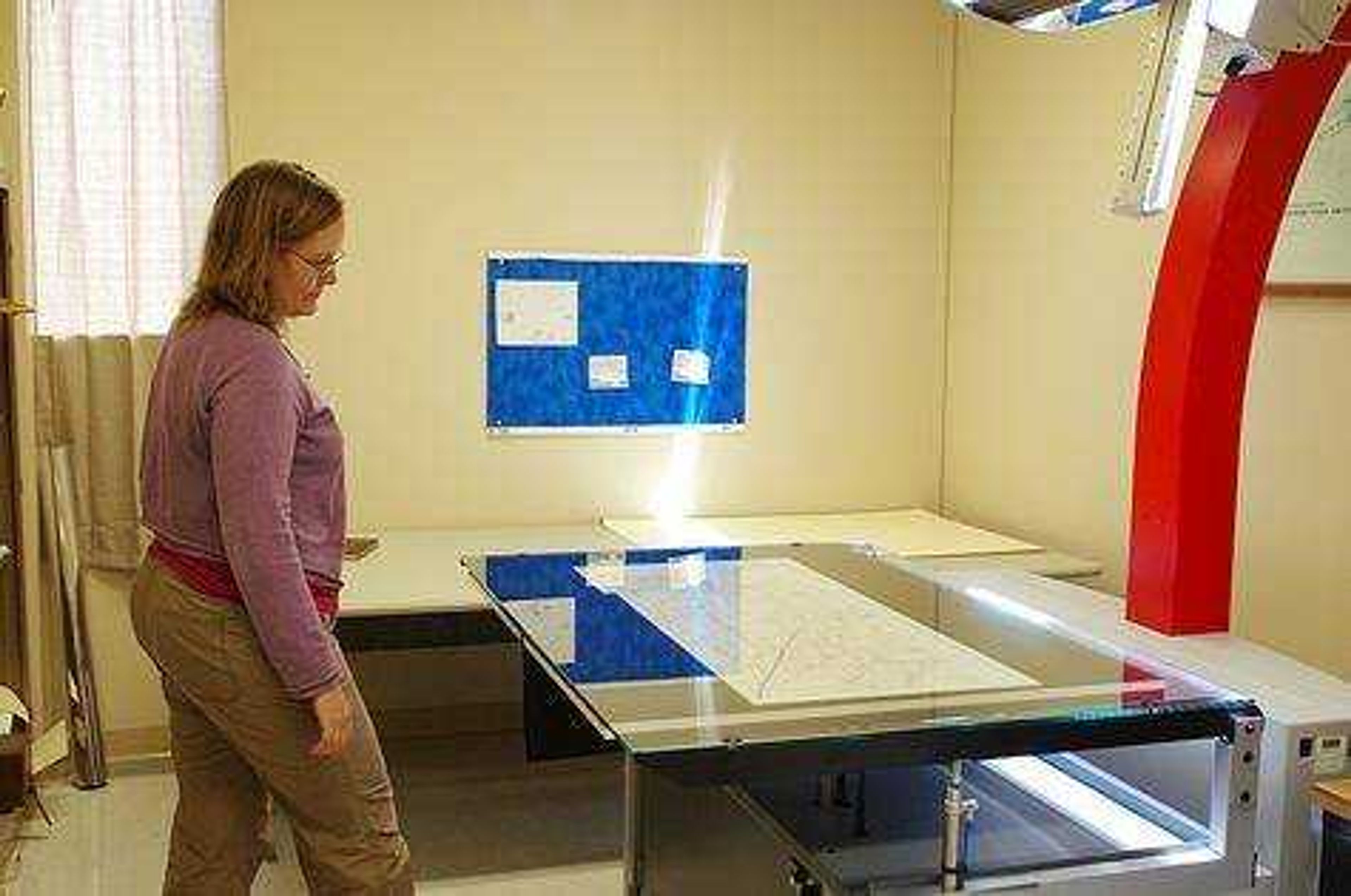Southeast Missouri State University has worked to get a planetary scanner ever since the library's director, David Starrett, asked if there was any technology that the faculty in Special Collections and Archives wanted two years ago.
"I was kind of joking when I told him we would like to have a planetary scanner," said Lisa Speer, Special Collections librarian at Kent Library. "I knew how much it would cost and thought that we would never get one. When he took the request seriously and told me to go forward with the proposal, I was stunned."
The scanner will be used to digitize materials that are too big or fragile for a standard scanner.
Once the proposal was finished, it had to go through a bid process with Southeast's purchasing department. During this time, the university received various proposals from companies wanting to sell a scanner.
"Planetary scanners are not something that is commonly purchased," said Ellen Ryan, digital project manager at Southeast. "So there are not a lot of vendors that sell them. In fact, the Crowley Company in Maryland is the only one in the United States that sells the scanner we wanted."
The scanner itself was manufactured by Zeutschel GmbH in Tübingen, Germany, and sold by Crowley. It scans documents up to 34.3 inches by 48.8 inches in about 17 seconds at the highest resolution possible.
"Other scanners take much longer to work," Speer said. "You could go get coffee, stop to visit with someone and return before a flatbed scanner would be done."
The scanner is designed to take two simultaneous pictures of the document and merge them into a three-dimensional image. Thanks to a book cradle, the scanner can also scan books up to 8.7 inches thick and up to 48.5 pounds face up.
"We also use the planetary scanner to scan objects that are more fragile, such as books that need support on their bindings," Speer said. "Doing so on a flatbed scanner would require you to take an open book and flip it upside down. Closing the lid on that would do long-term damage to certain documents."
The scanner comes with software known as Perfect Book, which eliminates curvature of books scanned. If the book was held while scanning, Perfect Book would also crop thumbs out of the image. Its Omniscan software also allows the scanner to identify individual items on the scanning bed so multiple documents can be scanned and saved as individual files.
For all of this, the scanner had a sticker price of $104,300. The university paid $96,777 while a grant of $7,523 covered the rest of the cost.
The funding for the scanner came from the congressionally managed Fund for the Improvement of Post-Secondary Education.
The scanner arrived over the summer and took two-thirds of a workday to assemble. The staff in Special Collections and Archives is using the planetary scanner as part of a long-term project to digitize its collection. The documents scanned will be accessible from the Special Collections and Archives page on the Kent Library site.
"Not everything in the archives will be digitized, but certain collections will be," Ryan said.
Ryan will travel to various historical sites, libraries and archives around southeast Missouri and southern Illinois and digitize some materials for them. Those materials she cannot scan on site will be scanned on the planetary scanner.
"We feel that this is a pretty generous gift we have received," Speer said. "So we would like to help smaller agencies around the region digitize their collections and offer preservation help to local agencies."




